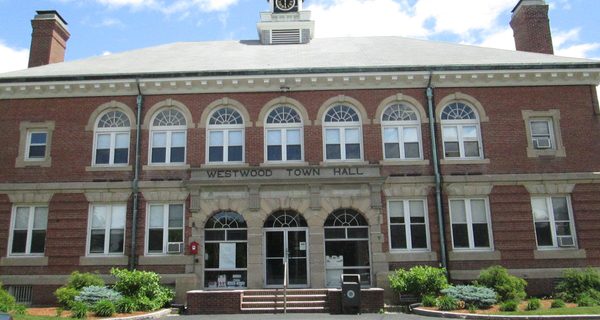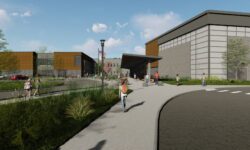By James Kinneen
Hometown Weekly Reporter
On Thursday night, the Westwood School Committee met over Zoom to discuss reopening plans for the fall, as well as a few other issues.
The meeting started with Emily Parks acknowledging the death of a longtime colleague. Former Westwood High principal Phil Flaherty, who Parks called the “institutional memory of Westwood High School,” had passed away since the committee's last meeting. In lighter news, Parks announced that Amy Davenport has been named the new Westwood High Principal, which left a vacancy in the dean of students role.
While nothing was made certain, Parks talked about how, as part of being a more inclusive and “anti-racist” ditrict, they were considering rethinking that role, and possibly splitting the traditional duties of the dean of students with a new role - “something like administrator of equity and student affairs.” However, with COVID throwing a huge wrench in any possible changes, the board was considering hiring, likely internally, a new dean of students with the expressed understanding that it would be an interim, one-year role.
Next, Abby Hanscom spoke about the “extended school year” (ESY), which although only one week in, could act as a dress rehearsal for what a full return to school would look like. To that end, Hanscom showed a white board that outlined the program’s daily schedule. Notably, the day began with every student washing their hands, and featured two designated “mask breaks.” She also showed photographs of what the desk setup looked like: essentially there was one chair at a double desk, and students were supposed to all face the same direction.
One of the things the ESY teachers have discovered is that, especially for younger grades who rely on facial expressions, plastic face shields have worked well. That was something the group said they'd look into. For ESY kids, recess is “more like going for a walk for the older students,” while for the younger kids it looks similar, but with far more teachers reminding them to maintain a distance from each other.
Still, while things are going well in ESY and the goal is to continue uninterrupted until August, Parks was quick to point out that, with only 100 students participating, the scale was much smaller than a full reopening would be.
The current plan is for all 3,000 students to come back on a five day schedule in the fall. However, Westwood must submit three proposals by July 31: one for a full Monday to Friday schedule, one for a completely remote learning schedule, and one for a hybrid of the two.
To make the fall return work, the school committee is looking at things like re-purposing the library, auditorium and cafeteria. However, the board acknowledged that the math doesn’t work to give students six feet of space, so they have had to make three feet of spacing the goal in their classrooms. While they are not recommending any screening or temperature checks and will instead rely on families to do their own screening, they are putting in place a COVID isolation space in each school, which will be separate from the nurse's office.
The budget was another issue that came up. While there were places the Westwood school system saved money, and Westwood was given $225 per student from the state (which ended up being about $650,000 total), the schools still ended up with a bigger deficit than usual. Looking forward, there are also issues about renting out the school buildings for events, which while it would make money, seems impractical given the disinfecting and cleaning that would need to take place every night due to COVID.
The only point of contention at the meeting was over the signing of a resolution asking the state for COVID funds, which had already been endorsed by 127 Massachusetts school districts. Essentially looking for financial reimbursement for COVID precautions, it read in part “let it be resolved that the state must guarantee full reimbursement for whatever COVID-19 expenses are required to follow state mandates.”
Tony Mullin argued that the committee had, against his wishes, intentionally decided to stay out of political issues and had in the past declined to comment on previous resolutions about marijuana and charter schools. One member argued that their claiming to be apolitical is inherently flawed, when their positions are all ones they ran on and for which they were elected, while another argued “it’s not political, it’s just asking for money.”
Everyone on the Zoom call laughed, and the resolution passed, 4-1.

























